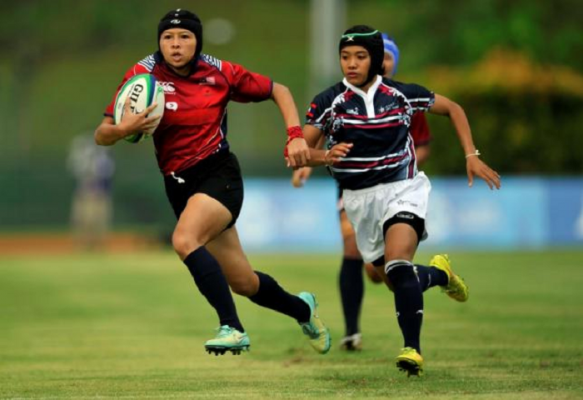Laos: the national team that practices in a car park
Laos may have finished last in this weekend's?South East Asia Games sevens, but sometimes taking part is an achievement?and...
Published by John Birch, June 7, 2015
5 minute read

Diving into tackles on the lush green grass at the Southeast Asian Games is a rare treat for the Laos rugby sevens teams who are more used to sidestepping motorbikes during training on a gravelly car park in Vientiane.
In the impoverished country, where many live without electricity and unexploded ordnance litter rural areas, rugby is a sport that is only just starting to take root.
So if the small grass area next door to the United States Ambassadors residence in the Lao capital is unavailable, the switch moves and passing drills take place in a nearby car park with plastic cones to try and deter the motorbikes.
Understandably, finding a field of their own is the priority for Lao Rugby Federation (LRF) partnerships and development advisor Megan Knight, who previously worked with USA Rugby.
"Pitches are the most important thing as the kids in most of the places where we are playing, play on dirt school grounds, they can??t tackle, that's the thing that prevents them from improving," the American told Reuters.
"Because of the bombs, the mountains, the gravel there is just a lot of reasons why it is tough to find a space to play."
The Colorado native, who speaks fluent Lao and regularly plays for the women's international team, moved to Laos after using the internet to find rugby development opportunities in Asia.
During her time, Laos has seen a growing female interest in the game after the LRF partnered with two non-government organisations, ChildFund and Women Win, on the Sport for Development project.
In a country where many women marry in their mid-teens and often leave school early to help farm family lands, Knight said the rugby project was developing life skills, improving confidence and fostering role models.
One of those is 23-year-old Lao Khang, who had never heard of rugby three years ago before the LRF came to her small village in Nonghet district. She is now one of 2,000 that play the sport, also coaching and administrating at the body.
"She is such a celebrity when she goes back, everyone knows who she is, they see her on TV," said Knight.
"Most people in Nonghet don't get a chance to leave the country, let alone the district, so to see someone who hasn??t even finished school go on and do all this stuff it really inspires kids to be involved ... there is huge benefit."
By offering paid work, sceptical families were more willing to allow daughters to pursue the alien sport.
"Their parents wont let them just join rugby clubs as they have all this other work to do," she said.
?
BIG HEARTS
Knight said poor internet and limited international rugby access meant none of the Laos women's team would recognise All Blacks centre Sonny Bill Williams.
But while playing numbers are growing, standards remain low. The women were beaten 17-0 by Malaysia and Philippines on Saturday before hosts Singapore walloped them 54-0.
Physicality is an obvious issue. Khang is one of the taller players in the squad at 1.60 metres (5-ft-3in), with three of the 12 below five feet.
"They like to always say they are small people with big hearts," Knight said.
While playing at the??"would be great", social development goals are the priority. The sport's global governing body, World Rugby, has taken note.
"They are saying if a small country like Laos can get so many girls participating we need to learn from the model," Knight said.
LRF receive only limited funding from World Rugby but were given a grant to aid their work in a country which has never won an Olympic medal and where children normally play either football or sepak takraw, the volleyball-like game popular in South East Asia.
The SEA Games experience, a rare foreign trip, concludes for the team on Sunday before they fly back on Monday. It will have cost the LRF $20,000, around a fifth of the annual budget, with no help from the Laos National Olympic Committee.
The team's eye-catching, flowery kits were donated by Hong Kong sponsors.
Knight said the job, which only became paid in September after four years, was rewarding but challenging.
"Sometimes it's really stressful, what Hong Kong do with 80 people we try to do with six. It takes us 14 hours driving to get to some of the places we are working. It's really hard but really fun."
()